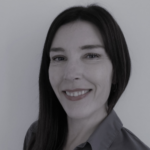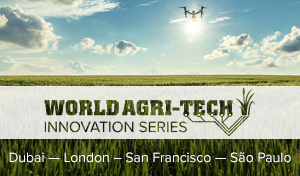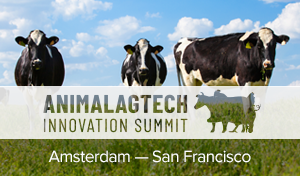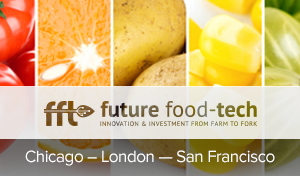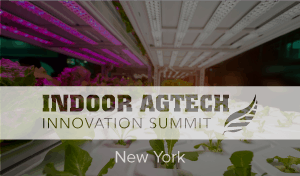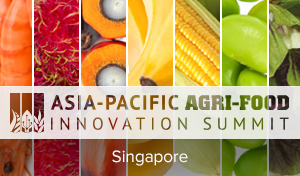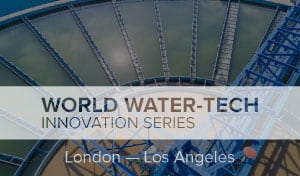Agtech investors leading projects in the Middle East, Africa and South Asia shed light on the building blocks of an ecosystem, the specific geographical challenges and how the industry can be a game-changer for commercial success in the region.
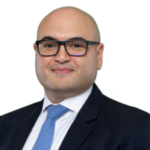
What does the current agri-tech investment landscape look like in the Middle East, Africa and South Asia?
Mohammad Nasr, Chief Investment Officer, SAVOLA GROUP: “Current agri-tech investments in the MENA region are still in their early stages, with investments largely geared towards growers utilising off-the-shelf technologies for vertical farming or temperature controlled greenhouses. We are only starting to see innovative technologies coming out of the region and institutions such as KAUST in Saudi Arabia that addresses fundamental challenges in sustainable growing solutions in harsh environments such energy consumption for cooling, salt water tolerant crops, and innovative heat reduction technologies among others.”
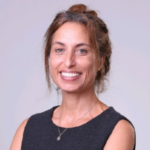
Shirley Shahar, Co-Founder, DANA VENTURE BUILDER: “The current agri-tech investment landscape where we operate is full of remarkable diversity and promising opportunities. DANA has chosen its first four strategic anchors in the region: UAE, KSA, Morocco and Israel. Each of these ecosystems is contributing its unique strengths to the agri-tech ecosystem and to Dana’s portfolio and cohorts. The UAE stands out as a strong player in addressing the challenges of bringing innovative agri-tech solutions to the markets, its alignment of food security policies and investments proves the nexus of public private sector in agri-tech. Israel has a strong and experienced agri-tech sector, built on innovation and R&D in agriculture. Morocco is another MENA anchor that is supported by public and world organizations investors, since it offers great potential for significant market growth and scaling up of agri-tech ventures. In the last years, we see that agritech and sustainability are taking a stronger part in the Saudi Arabia investment ecosystem. We see visionary projects like NEOM, that highlights the desert and the technologies around it. We are positive that thanks to investments around these and like-minded projects, the agritech sector will flourish and grow dramatically.”

“Despite several shared challenges across MEASA, each agri-tech sub-region is developing at a different pace. South Asia, particularly India, has a comparatively mature agri-food technology ecosystem, with some clear winners on the horizon, plus deep multi-stage venture funding availability. While agri platforms & marketplaces dominated Indian agri-tech funding over the past few years, there is an emerging focus on climate-smart deeptech, rural fintech, and agri-food life sciences. The African agri-food technology landscape is at a nascent stage, though a few Series B rounds have been raised by early leaders like Apollo Agriculture and Pula. Finally, the Middle East has a diverse agri-tech ecosystem, focused on solving food security challenges in both developed (e.g. UAE, KSA) and developing (i.e. Egypt) economies.” Mark Kahn, Managing Partner, OMNIVORE
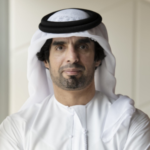
Mohamed Al Hosani, Head of Strategic Partnerships, ABU DHABI INVESTMENT OFFICE (ADIO): “Generally, these regions are utilising AgTech to address food security challenges. Food security is particularly complex for the Middle East. The region has a low agricultural output due to limited arable land, water scarcity and climate-related shocks. On the flipside, this means that there is an enormous opportunity for the AgTech ecosystem to grow. We need to dig deeper and explore innovative solutions that could turn the agriculture system on its head, by enabling us to grow more with less.
“In the long-term, technology plays a crucial role in ensuring food security for the UAE and globally. Abu Dhabi is pioneering programmes that support the development of AgTech solutions for desert and arid environments. For instance, ADQ’s AgTech Park project aims to accelerate sustainable local food production and position the UAE as a hub to supply high-growth markets across MENA.”
Simon Sharp, Partner, GLOBAL VENTURES: “Middle East and Africa are witnessing a flourishing of entrepreneurial talent in agri-tech, offering groundbreaking solutions to global food security challenges. The regions are nurturing an environment conducive to agriculture innovation, with supportive governmental policies, active capital markets and dedicated research efforts.
Venture capital is flowing into agri-tech start-ups, highlighting the sector’s potential – in Africa, over $169 million has been poured into agri-tech start-ups in 2023 so far. In the Gulf, governments are proactively supporting the sector by partnering with international agri-tech businesses to transfer knowledge into the region and by supporting local companies building solutions across the agriculture value chain.”
Considering recent investment recalibrations, how can we ensure that agri-tech funding remains stable to continue to fund transformative agricultural technologies?
Mohamed Al Hosani: “ADIO has supported many agtech companies to build new R&D facilities and develop cutting-edge projects in Abu Dhabi dedicated to next generation agriculture and food cultivation in arid and desert climates. That’s why we are casting our net wide and supporting innovation across the value chain. The goal is for the solutions developed in Abu Dhabi to be exportable and to support other arid climate environments. This is key for us. Once companies have tested and proven the solutions developed here, the solutions can be exported globally to help similar climates around the world. Unconstrained collaboration is needed if we want to succeed. We are all after the same results, which is to improve our food system and bolster food security. Only by working closely with one another, can we build an ecosystem that enables innovation and cutting-edge solutions.”
Mark Kahn: “An unfortunate aspect of the last funding boom was that many agri-tech start-ups raised money based on vanity metrics (GMV) or questionable unit economics. Others sold dreams of indoor agriculture and alternative protein that collapsed in the face of rising consumer prices. From a VC perspective, our job is to not only identify and back promising start-ups, but also to guide entrepreneurs towards profitable growth and exits.”

Simon Sharp: “In the region, the agriculture sector continues to gain momentum, as food security remains a key focus for national governments. However, capital allocation is, and continues to be, a primary challenge for regional agri-tech companies. That being said, there was c.$200m of agri-tech funding in 2022 in MENA, up from $95m in 2021, highlighting positive growth of the sector and the necessity for innovative solutions to tackle the ongoing food insecurity issues. Whilst valuations in the Middle East and North Africa are correcting, founders have adapted their approaches to funding, now being willing to raise short-term bridge rounds to improve traction, as more funding becomes available.”
What kind of start-ups are currently attracting most interest from investors to alleviate the challenges in those regions and why?
Shirley Shahar: “This sector requires more patience, and at times, different ROI approaches. We prefer ‘rhinos’ over ‘unicorns’ when it comes to agri-tech. Although 45% of our planet is desert, there are still very little efforts being made to strengthen the investment around desert technologies and projects in the MENA region. We believe the best companies in this sector will bring sustainable solutions and show great revenue potential, and we favour technologies that are easy to implement, cost-effective, and provide quick, tangible results. We believe the start-ups in the MENA region that draw investor interest should address the unique challenges developing desert tech, water-tech and water-saving solutions, food waste reduction (especially in the post-harvest and last-mile stages of the supply chain, such as Liva) and regenerative agriculture (and DANA has designated a special part of its a beta site in Masdar city to pilot technologies around this sub sector.)”
Simon Sharp: “There are several innovations which are revolutionizing agriculture in the Middle East and Africa, leveraging science, innovative models, and the latest agri technologies. We are seeing start-ups harness controlled environment agriculture (CEA), transforming the way crops are grown while preserving scarce resources. RedSea – a sustainable agtech whose pioneering tech advances commercial farming in hot climates – has the capability to reduce energy and water consumption by 90%.
Traceability technology – tracking the journey of products from farm to table, ensuring transparency, quality control, and accountability at every stage of production and distribution – is also gaining traction in the region. SeafoodSouq is a fully supply chain traceability solution using RFID tags to digitally document the entire journey of seafood products from catch to consumer.
Other innovative models in the region include precision agriculture – leveraging the suite of technologies that accompany the pursuit of more informed and precise crop management; alternative protein – addressing human protein consumption and animal feed sustainability; and platformisation and embedded finance – focused on creating digital ecosystems that integrate various stakeholders from farmers to buyers.”
Mark Kahn: “In India, while investors across stages have become more cautious the past decade proved the importance of technology innovation to safeguard food security. India is not immune to the global slowdown, but on the bright side, upstream investments increased in 2022. Emerging sub-sectors with increasing investor interest include agri-food life sciences, rural fintech, and climate-smart deeptech. As for Africa and the Middle East, we’re eager to learn more about the ground realities while attending (and sponsoring) World Agri-Tech Dubai!”
Hear from and share thoughts with all of these investors and more at World Agri-Tech in Dubai this December. Now’s the time to secure your place and join the action!

 CLOSE
CLOSE